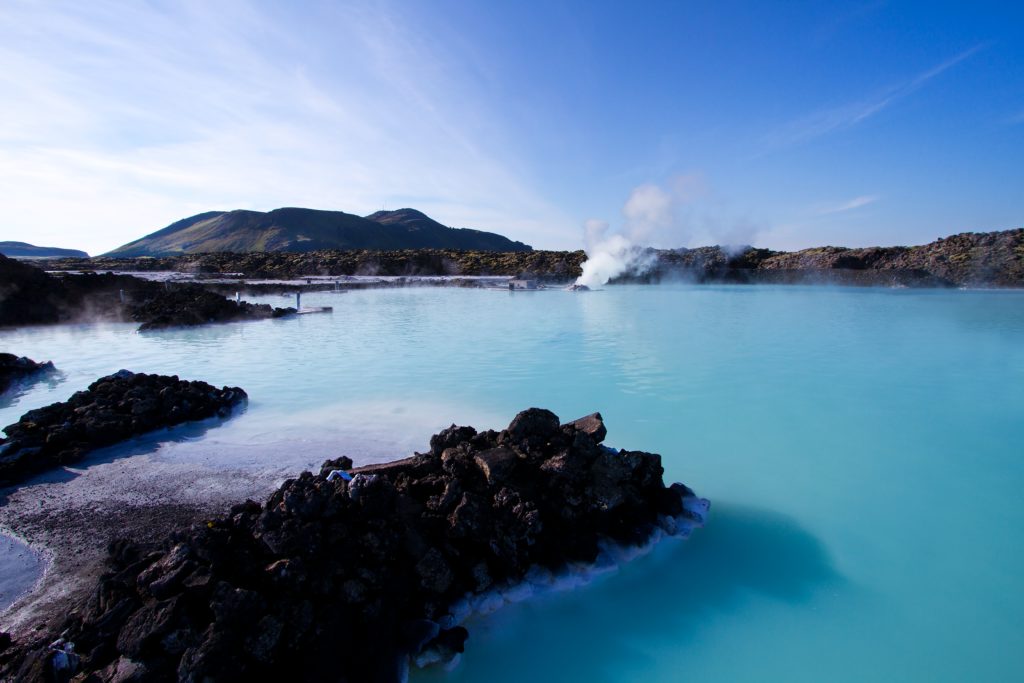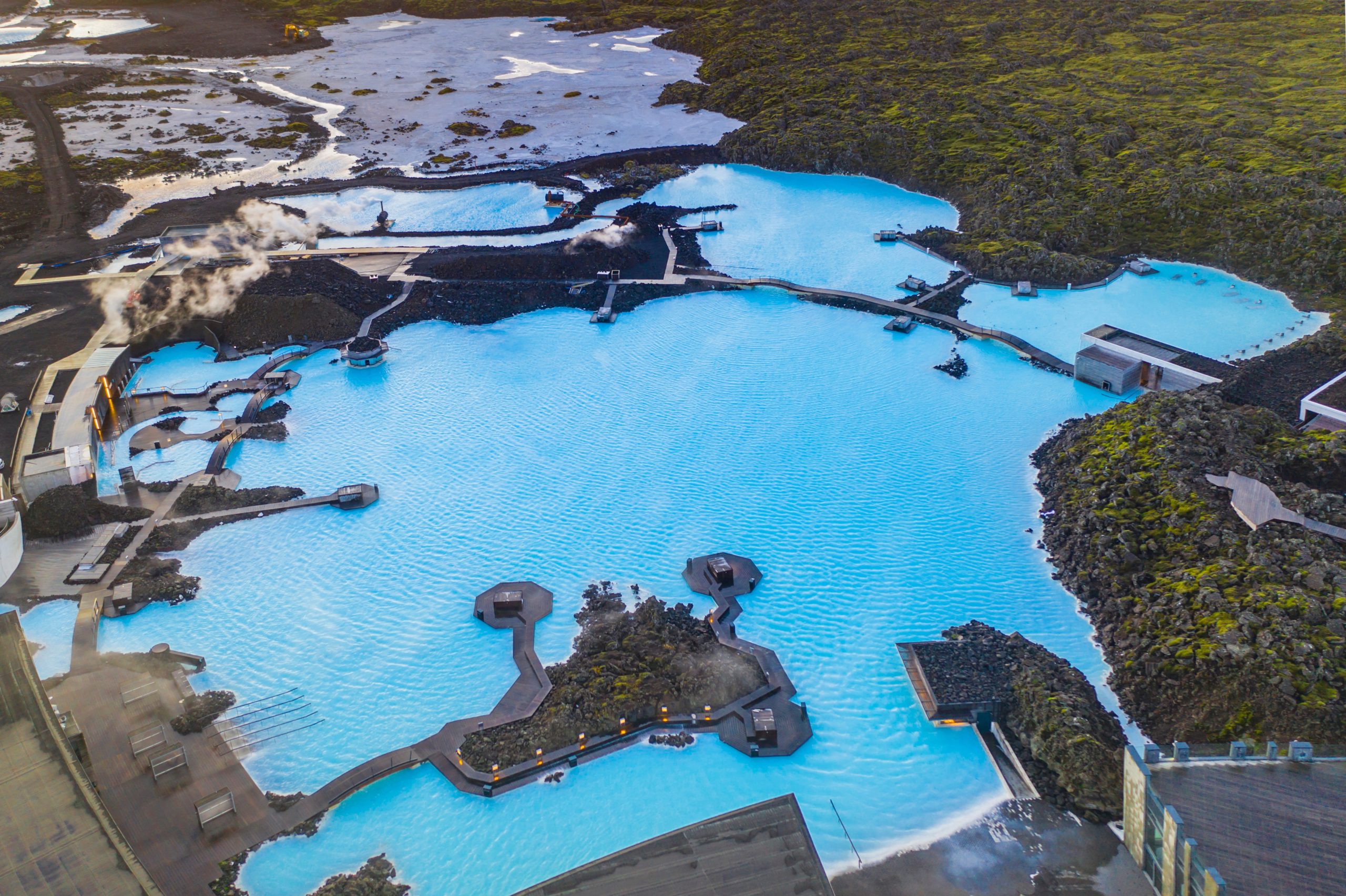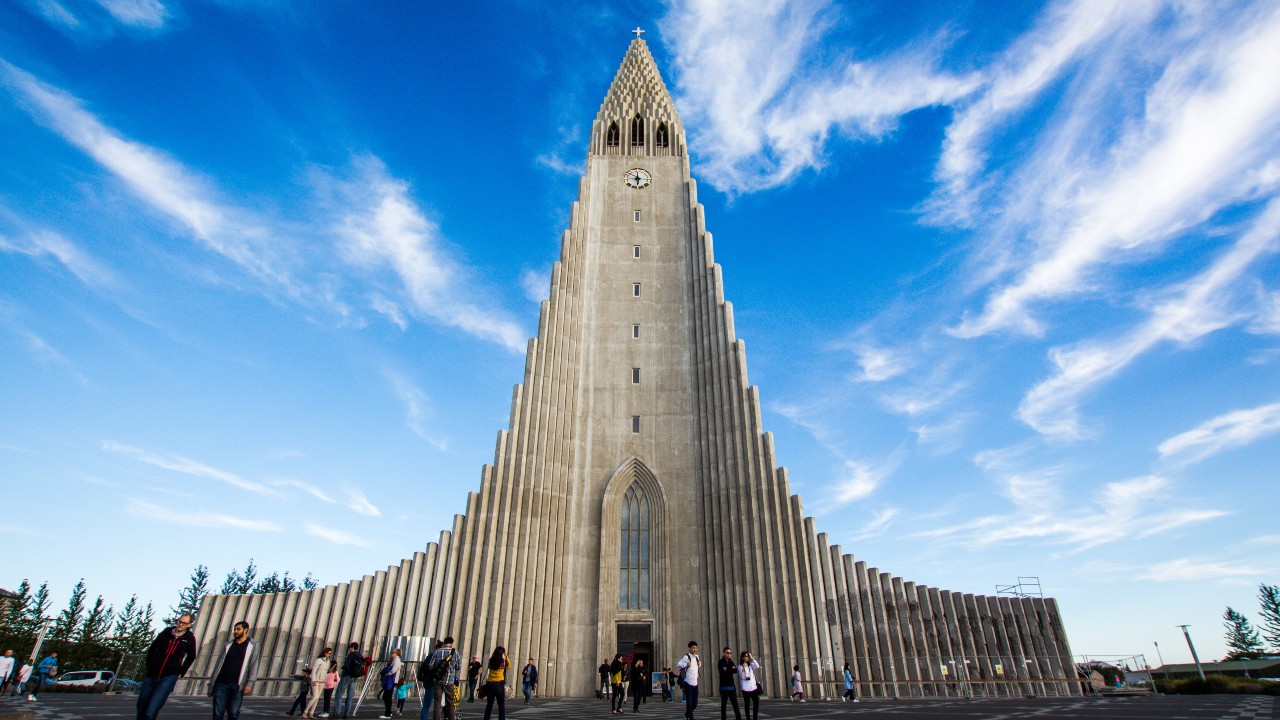Is Iceland open to travel? | New rules from March 2021
By Michael Chapman
It's finally time to return to the Land of Ice and Fire!
Is Iceland open to travel? | New rules from March 2021
By Michael Chapman
It's finally time to return to the Land of Ice and Fire!
From March 18th 2021, any traveller with certified proof of a COVID-19 vaccination, or an antibody certificate showing prior infection, will be allowed entry into Iceland.
These policy changes are momentous news and brilliant timing for anyone in the US or UK planning a holiday to Iceland later this year.
After so many months spent isolating ourselves in our homes, the opportunity to travel is an exciting prospect indeed, and we are all too eager to welcome you back.

In that moment you finally set foot in Iceland, it’s hard to imagine a gentle wave of relief will not overcome you. The majesty of Iceland’s natural environment—its glittering waterfalls, volcanic beach heads, sweeping glacial plains and snow-capped mountains—all await to be discovered by any adventurer ready to unshackle themselves dithering about the home.
Time to pack your bags, ladies and gentlemen; unforgettable overseas holidays are on the cards once more, and we, for one, could not be more delighted!
Iceland opens its borders today

The Icelandic government, the Alþingi, announced plans this week to reverse the country’s closed border policy, a preventative measure put in place to curb the virus’s spread.
As of March 18th 2021, anyone who has had two doses of any vaccine approved by the EMA (European Medicines Agency) can enter the country without testing, signifying real promise among holiday-makers preparing future trips to the land of ice and fire.
The two most widely accepted vaccinations in the UK and EU are AstraZeneca and Pfizer. Currently, Icelandic officials are only counting certificates provided by either the EU or the World Health Organization as valid. Any traveller caught at the border attempting to pass-off a fraudulent certificate can face fines reaching 150,000 ISK.
Anyone unfortunate enough to have suffered through a COVID-19 infection in the past also has reason to rejoice. Overseas guests with certified proof of prior infection are allowed entry to the country without the need for a 5-day quarantine because previously infected people have antibodies in their system that prevent spreading the virus to others.

These changes show a decisive turnaround in the Alþingi’s thinking. After all, only a few weeks ago, the government considered neither a vaccination nor antibody certificate enough to allow entry into Iceland. This U-turn in policy allows for broader access to Iceland than before and is a sure sign the government considers now the time to re-evaluate the industry.
According to the Minister of Justice, Áslaug Arna Sigurbjörnsdóttir, the government decided to open the borders because Iceland has managed to keep its infection numbers low for a prolonged period. On top of that, the government has secured vaccinations for the majority of the domestic population.
In short, the coronavirus situation in Iceland is seen to be under control, and most people are optimistic that life will soon return to some semblance of normality.

The Justice Minister also cited Iceland’s economic reliance on tourism as a contributing factor in the government’s choice, emphasising that allowing USA and UK travellers to enter the country will help mitigate the damage seen over the last year.
While some have perceived this response as falling to pressure from tourism companies, others have defended the industry, both its role as a vital contributor to Iceland’s economy and as a field in which tens of thousands of people are employed.
The Minister of Justice used Cyprus as an example of another island nation planning to open its borders within the coming months.
The USA and the UK are the two largest markets for the Icelandic tourism industry. Posing further challenges, UK travellers recently lost the right to travel to Iceland under the same regulations as the other 26 Schengen-area countries due to Brexit. Thankfully, it seems the UK’s exit from the European Union has had no impact so far on travelling between there and Iceland.
PLAN YOUR JOURNEY
Travelling to Iceland?
Check our overnight tours with a driver guide that includes a one night stay in a bubble.*Starting from ISK 74.900 per person
What if I don't have a vaccination certificate?

Suppose you do not have a certificate proving your vaccination. In that case, you may still be allowed entry into Iceland as long as you show proof of a negative PCR test—taken within the last 72 hours—and promise to adhere to the testing and quarantine rules in place. PCR stands for polymerase chain reaction, a medical test that amplifies DNA strands and allows scientists to detect the presence of genetic material from certain organisms, such as a virus.
So, as it stands, anyone with a valid EU/EFTA passport is welcome to travel to Iceland, so long as they complete the mandated tests and quarantine period. Note that Canadian and American travellers still require proof of vaccination or prior infection to enter the country. Hopefully, this policy will shift soon, and we will be sure to inform you when any changes occur.
Two tests must occur for those who arrive in Iceland without certificates of proof: the first at the border, and the second at a clinic, taken after a 5-day quarantine. The location of your nearest testing facility will be sent to you by text message and over the government’s companion COVID-19 mobile application, Rakning C-19. You can read more information about testing and quarantine rules at both covid.is and government.is.
Are there other changes being made related to COVID-19 in Iceland?
Despite the changes made, Iceland’s Chief Epidemiologist, Dr Þórólfur Guðnason, has urged that people remain vigilant. Despite the country’s successes in keeping the virus restrained, it appears the government is still watchful of the situation and no doubt have fears of any third-wave that might occur following opening the borders.
If the situation deteriorates—which is not expected, understand—it is clear the Alþingi will likely shut down the borders once more.

Here at home, restrictions on gatherings will remain essentially unchanged, save for a handful of minor measures. For instance, guests must register to participate in events, drinks will no longer be served during intervals at events or competitions, and there is no mixing of people between restricted areas.
While these rules are of little consequence to overseas travellers, it is essential to realise that Iceland’s borders opening up does not mean the fight against the virus is over.
We still advise you to wash your hands routinely and wear masks when shopping or entering public spaces in Iceland. If we behave with respect towards others and ourselves, then there is a fantastic chance this country will have bested the coronavirus for the long-term, meaning you and millions of others are free to explore this island for many years to come.
So when are you planning on visiting us?

With open borders to Iceland now a reality, there is only one question left for those with the certificates allowing entry—
When do you plan on arriving in Iceland? Whatever month, or months, you settle on, know that each season offers its distinct advantages.
The summer, May to August, allows for 24 hours of daylight courtesy of the Midnight Sun—plenty of time to pack as many sites and activities into your day as you can.
On the other hand, the winter offers guests the chance to see the ethereal Northern Lights, as well as a vast and eclectic landscape blanketed in a mesmerising coat of white.

Despite the fear, stress and restrictions the coronavirus imposed across the world these last months, Iceland remains a country of staggering natural beauty, a secluded, sub-arctic oasis that makes for the perfect spot to escape, repair and revitalise.
With that in mind, it’s easy to understand why this country is among the top destinations people hope to travel to in 2021.
We at Bubble are delighted to welcome guests back to our gorgeous home country, and we cannot wait to return sharing all the fantastic sights and experiences that have long made Iceland one of the top tourism destinations in the world.
Update as of 23rd March 2021: The above article lays out the entry rules currently stipulated by the Icelandic government, and thus does not apply to those whose own home countries have forbidden travel. Currently, the UK is imposing fines to anyone taking foreign holidays.
PLAN YOUR JOURNEY
Travelling to Iceland?
Check our overnight tours with a driver guide that includes a one night stay in a bubble.*Starting from ISK 74.900 per person


























